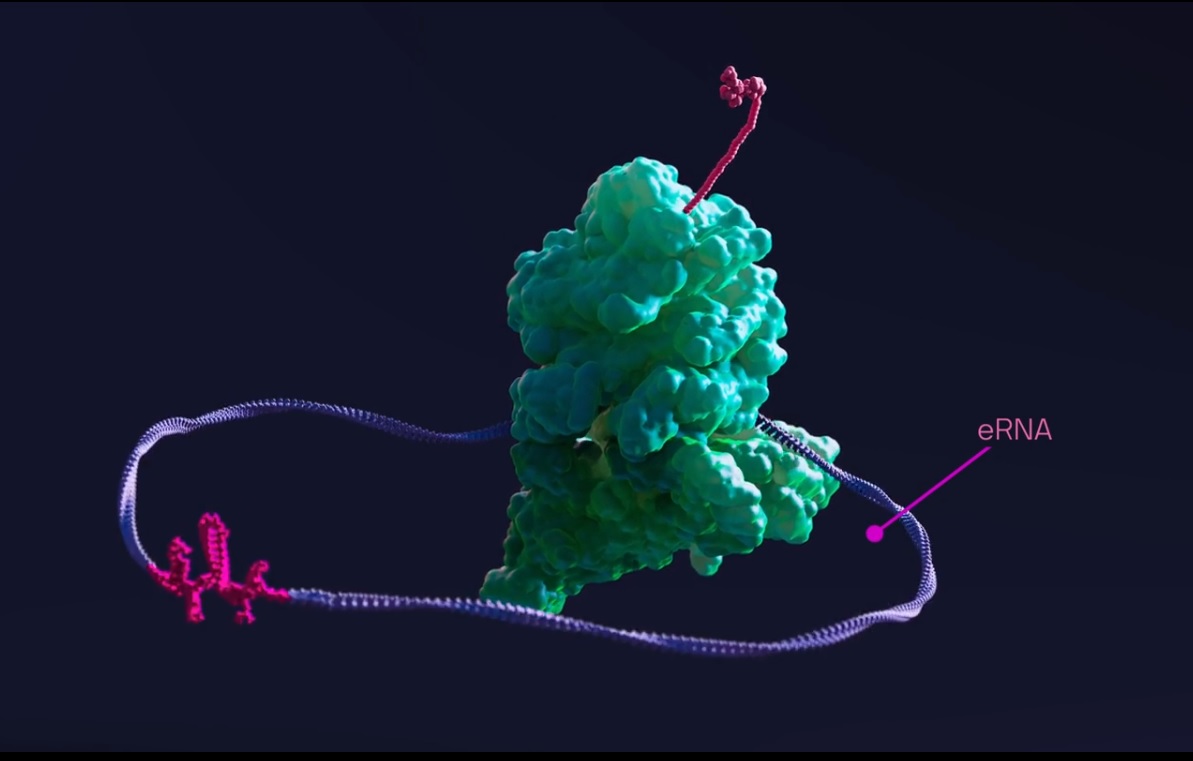
Messenger RNA vaccines for Covid-19 showed how this technology could turn the body’s cells into factories that churn out useful proteins, at least temporarily. Biotech startup Laronde is developing a way to make this protein production endless, potentially leading to new medicines that are more stable and longer lasting.

With the Rise of AI, What IP Disputes in Healthcare Are Likely to Emerge?
Munck Wilson Mandala Partner Greg Howison shared his perspective on some of the legal ramifications around AI, IP, connected devices and the data they generate, in response to emailed questions.
On Monday, Cambridge, Massachusetts-based Laronde unveiled its technology along with $50 million in Series A financing. The cash comes from Flagship Pioneering, the venture capital firm that formed mRNA biotech Moderna and has been incubating Laronde for the past four years.
Messenger RNA is a set of genetic instructions that tells the ribosome, the protein-making machinery of a cell, what protein to make. The mRNA molecule looks linear, like a string. Protein production is initiated by a cap on one of the ends of this mRNA string that engages with the ribosome. This protein-production process is temporary because enzymes in the cell eventually latch on to the ends of the mRNA and break down the molecule.
Laronde began in Flagship under the moniker FL50, signifying that it was the 50th life science platform began with the firm’s labs. The startup’s approach is suggested by its new name, which translates from French as “round.” Scientists at Flagship observed naturally occurring RNA in cells are circular in shape. This RNA does not code for proteins, as it does not have ends that start the protein-making process. But they theorized that if they could get this circular RNA to engage with the ribosome, the RNA could potentially make proteins continuously.
RNA viruses initiate protein translation without a cap on the end of the molecule, and that pointed the way to get the circular RNA to translate proteins. Those viruses have a genetic sequence called an internal ribosomal entry site (IRES) that engages the ribosome. Flagship incorporated an IRES into circular RNA, forming what the firm dubbed endless RNA, or eRNA.
Laronde can get eRNA to produce a desired protein via a programable “cassette” that contains the codes for that protein. These cassettes are digitally designed on a computer. According to the company, the type of therapeutic protein produced—peptides, enzymes, antigens, antibodies—can be changed by switching the cassette on the eRNA.
In mouse research described on Flagship’s website, the scientists tested an eRNA for a light-emitting enzyme in firefiles and an mRNA that encodes the same protein. Both forms of RNA expressed the firefly enzyme in the mice. But Flagship said that the enzyme produced by mRNA began to disappear within three to four days. In the mice that received eRNA, enzyme production was sustained for several weeks.
Speaking on a company video, Laronde CEO Diego Miralles said that this eRNA technology could enable the production of durable and programable therapeutic proteins in a patient.
“It’s able to make any protein, any therapeutic protein you could think of and do it in a way that is persistent, because by being endless and by being so stable, it stays in the body for a very long time following administration,” he said.
Miralles also announced an ambitious goal. Laronde aims to make 100 new medicines in the next decade. Because the technology is a platform that is scalable, it has the potential to produce medicines for many therapeutic areas. The company has not specified its initial disease targets, but Miralles said that therapeutic areas that could be addressed include endocrinology, neurology, infectious diseases, autoimmune disorders, and cancer.
To support its 100-medicine goal, the company is building a new factory that will be able to support production of its eRNA-based therapies for clinical development. That facility will also be scalable, in order to support the commercial manufacturing of therapeutic products, assuming they win regulatory approval. Laronde said that it expects to hire more than 200 people to support the development of its drug programs and its eRNA technology.
Screenshot from Laronde video














